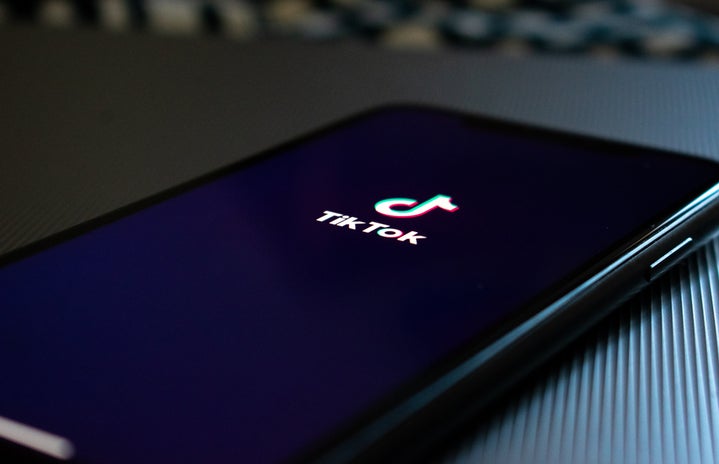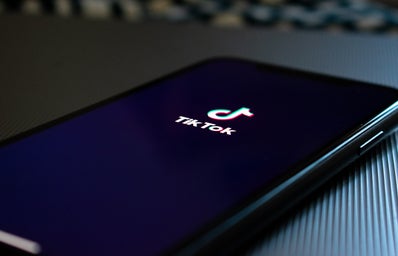It is nearly impossible to go through one’s day without being bombarded by advertisements. In fact, it is estimated that the average person in America encounters approximately 10,000 ads a day. Given the staggering number of ads we interact with daily, it is not surprising that people are often easily influenced to buy one or two things. The people who make these advertisements are also experts in what they do. They know how to suck us in and get us interested in their product, eventually convincing us we need it. However, recently a new trend has emerged on TikTok labeled “deinfluencing,” which works to combat gross over consumerism by convincing people they do not need 20 different reusable cups. In the grand scheme of things, should this trend be successful, it will create a movement away from fast fashion and towards sustainable shopping practices, overall benefiting us as consumers and changing how our economy functions.
Every day it seems like there is a new trend. It feels impossible to keep up with what shoes to wear in what color and what hair accessory is currently “in.” This is not even limited to the fashion industry with styles of cakes coming into and out of popularity along with home aesthetics and even just vibes. The movement of these trends only seems to be getting quicker, a constant acceleration towards increased waste and decreased individuality. Much of this can be chalked up to the rising popularity of TikTok, a social media app with over 1 billion monthly users and one of the four largest social media platforms. As I am sure you know, TikTok is full of mainly short form videos that capture your attention for around 30 seconds before leaving you wanting more as you swipe to the next video. Interlaced with these videos are ads, whether they are obvious or not, they are everywhere, and most people consume them with little concern.
As mentioned earlier, advertisements are everywhere, not just TikTok. However, it seems that TikTok has created a unique environment where people become more willing to consume ad content with 38% of TikTok users not minding advertisements in exchange for free content compared to 34% of users on other social platforms. The power of advertisement on Tiktok becomes even more evident when you look at its ability to actually get people to buy something. Of TikTok users surveyed, 28% said they have bought something because a celebrity or influencer influenced them to buy it compared to only 18% of users on other apps. Something about TikTok makes influencing significantly more poignant, which makes deinfluencing all that much harder.
While it may vary for people depending on their individual algorithm, Tiktok is not shy about shoving ads in your face and being very subtle about it. Additionally, TikTok is exceptionally good at attracting people to create content, or to become influencers. While the role existed before TikTok, it has never had quite the significance as it does now with TikTok. Many people randomly blow up for no good reason and they are launched into fame: attending red carpets, fashion shows and making thousands of dollars. Due to the seemingly random nature of this stardom, everyone thinks they can be just like their favorite influencer and get lucky. This drives people onto the app to try and make money by creating content. As a result, there is an abundance of people, with large and small followings, making content advertising products. Sometimes, they do not even tell you they are marketing a product. Recently, some nutritionists were called out for partnering with certain brands and not disclosing their paid partnership. This lack of transparency can be confused for trust. And when a viewer trusts their favorite influencer, it is easy to trust that the products they rave about are good. This drives people to buy products that are not actually as good as they are supposed to be. Often this means things get thrown in the trash and taken to the landfill.
Tiktok, despite being a massive driver for over consumption, is not the only cause. Social media as a whole plays a role in influencing people to look and act in a certain way to fit in. This is something that has been widely studied and there is a clear connection between social media use and susceptibility to peer pressure. Everyone wants to look like Alix Earle and have all the things she has. This desire to fit a certain mold is another driver for people to buy stuff they do not need. Just because an influencer wears a new dress every time they go out, doesn’t mean the same is expected of broke college students. People yearn so badly to be accepted that they think if they buy enough stuff they might be.
All of this is to say that social media has created the perfect conditions for influencing. If you are a victim, it is by no means your fault. However, there are some things that can help you be more aware of social media working against you to ultimately save money and decrease waste. It is firstly important to get out of the mindset that you need everything or that you must follow every new trend that comes out. Trends come and go so quickly nowadays that unless you have boat loads of money, it is impossible to keep up. Instead, try to find things in each trend that you genuinely like and work to build your own personal style based on those. Additionally, we are a result of the society in which we live, a society based on capitalism. This being true, we have been taught that some of our only power lies in our buying power. It is easy to mistake this power to continue to consume to drive the market in certain directions. However, this power can actually be ironically enough empowering. Realizing that companies are nothing without the consumers who pay them for their products is an important step to being deinfluenced. Do not let these big corporations or influencers with millions of dollars trick you into buying stuff you do not need, nor do you really want. Your money is your own and it is important to spend it with purpose, not because there is a one-time sale on the pickle sweatshirt in TikTok shop. Allowing yourself to become empowered by the choice you make to not buy something is the goal of deinfluencing.
After a long day of classes, it is so easy to mindlessly scroll on social media and allow yourself to be convinced into buying random things to follow random trends. This does not have to be the case. If you become more aware of the ways in which social media and large corporations attempt to work against you, it will become second to resist the many thousands of ads you encounter every day. Deinfluencing is an important step to creating your own self outside of social media, influenced only by your own preferences. It can be a powerful tool to never feel behind in the race of microtrends.


